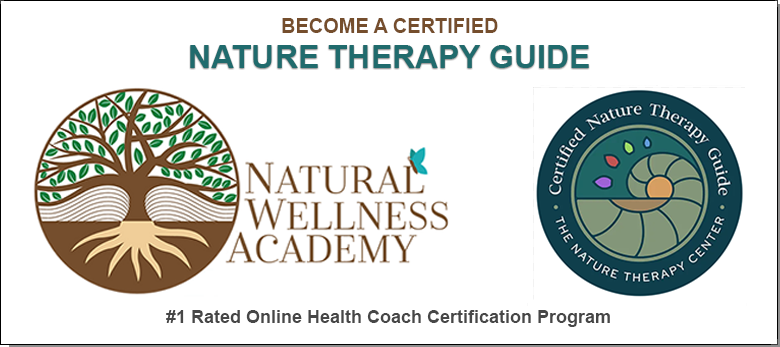
In an era where stress, anxiety, and sedentary lifestyles are increasingly prevalent, the need for holistic and effective health solutions has never been greater. Nature therapy, also known as ecotherapy, has emerged as a powerful approach to improving mental, physical, and emotional well-being. This article explores what nature therapy is, the scientific evidence supporting its benefits, and practical ways to incorporate it into your daily life.
Contents
Understanding Nature Therapy
Definition of Nature Therapy
Nature therapy, or ecotherapy, involves engaging with natural environments to promote health and well-being. This therapeutic approach encompasses a wide range of activities such as walking in the park, gardening, hiking, and outdoor meditation. The fundamental principle behind nature therapy is the belief that humans have an intrinsic connection to nature, and interacting with natural settings can restore balance and enhance overall health.
Types of Nature Therapy
There are various forms of nature therapy, each offering unique benefits:
- Forest Bathing (Shinrin-Yoku): This Japanese practice involves immersing oneself in a forest environment to promote relaxation and well-being.
- Horticultural Therapy: Engaging in gardening and plant care activities to improve mental and physical health.
- Green Exercise: Physical activities performed in natural settings, such as walking, jogging, or cycling.
- Outdoor Meditation: Practicing meditation in natural environments to enhance mindfulness and relaxation.
The Science Behind Nature Therapy
Physiological Benefits
Numerous studies have highlighted the positive impact of nature therapy on physical health:
- Improved Cardiovascular Health: Activities like walking and jogging in nature can improve heart health and reduce the risk of cardiovascular diseases.
- Enhanced Immune Function: Spending time in natural settings can boost the immune system and increase resistance to illnesses.
- Reduced Inflammation: Nature exposure has been linked to lower levels of inflammation, which is associated with various chronic diseases.
- Better Respiratory Health: Fresh air in natural environments can improve respiratory function and overall lung health.
Mental and Emotional Benefits
Nature therapy is known for its significant impact on mental and emotional well-being:
- Stress Reduction: Nature lowers cortisol levels, promoting relaxation and reducing anxiety.
- Improved Mood: Being in nature can elevate mood and reduce symptoms of depression.
- Enhanced Cognitive Function: Nature exposure improves cognitive function, including memory and attention.
- Emotional Healing: Interacting with nature can facilitate emotional healing and improve overall emotional balance.
Benefits of Nature Therapy for Physical Health
Encouraging Physical Activity
Engaging in physical activities in natural settings can boost motivation and enjoyment, making it easier to stick with a fitness routine.
- Variety of Activities: Nature offers diverse activities such as hiking, cycling, swimming, and running, which can keep your workouts interesting.
- Scenic Environments: Beautiful natural landscapes provide a stimulating and enjoyable backdrop for exercise.
- Reduced Stress: The calming effects of nature help reduce stress, making workouts feel less strenuous and more enjoyable.
Improving Cardiovascular Health
Activities like walking, jogging, and cycling in nature can improve cardiovascular health and endurance.
- Heart Health: Regular aerobic exercise in natural settings strengthens the heart and improves circulation.
- Endurance: Engaging in outdoor activities can enhance stamina and overall physical endurance.
- Lower Blood Pressure: Nature therapy can help reduce blood pressure through regular physical activity and stress reduction.
Supporting Weight Management
Nature therapy can play a significant role in weight management by promoting regular physical activity and healthy lifestyle habits.
- Calorie Burn: Activities like hiking, cycling, and swimming can help burn calories and support weight loss.
- Increased Motivation: Enjoyable outdoor activities can increase motivation to maintain a regular exercise routine.
- Holistic Approach: Nature therapy encourages a holistic approach to health, integrating physical activity with mental and emotional well-being.
Benefits of Nature Therapy for Mental and Emotional Health
Reducing Stress and Anxiety
Spending time in nature has been shown to significantly reduce stress and anxiety levels.
- Cortisol Reduction: Nature therapy helps lower cortisol levels, the hormone associated with stress.
- Relaxation: The calming effects of nature promote relaxation and mental tranquility.
- Mindfulness: Nature encourages mindfulness practices that help individuals stay present and reduce anxiety.
Improving Mood and Emotional Well-being
Nature therapy can enhance mood and emotional well-being by providing a positive and uplifting environment.
- Positive Emotions: Experiences in nature often evoke positive emotions such as joy, gratitude, and awe.
- Emotional Healing: Interacting with nature can facilitate emotional healing and provide a sense of peace.
- Connection: Nature fosters a sense of connection to oneself, others, and the larger universe.
Enhancing Cognitive Function
Exposure to natural environments can improve cognitive function and mental clarity.
- Focus and Concentration: Nature therapy helps improve focus and concentration, making it easier to handle daily tasks.
- Memory Improvement: Regular interaction with nature has been linked to improved memory and cognitive function.
- Creative Thinking: Nature can stimulate creativity and enhance problem-solving abilities.
Practical Ways to Incorporate Nature Therapy into Your Life
Daily Nature Walks
Incorporating a daily nature walk into your routine is a simple yet effective way to practice nature therapy and improve overall well-being.
- Set a Routine: Plan a regular time each day for a nature walk, whether it’s in a nearby park or around your neighborhood.
- Focus on Light Exposure: Make sure to get plenty of natural light during your walk to help regulate your circadian rhythms.
- Practice Mindfulness: Use your walk as an opportunity to practice mindfulness, focusing on the sights, sounds, and smells of nature.
Gardening and Horticulture Therapy
Gardening and horticulture therapy involve engaging with plants and nature to promote mental health. These activities provide a sense of accomplishment, reduce stress, and enhance mood.
- Start a Garden: Create a garden space at home, whether it’s a small balcony garden or a larger outdoor garden.
- Engage in Gardening Activities: Participate in activities such as planting, weeding, and harvesting.
- Connect with Nature: Spend time in your garden, observing and interacting with plants and wildlife.
- Join a Community Garden: Consider joining a community garden to connect with others and share the benefits of gardening.
Outdoor Meditation and Yoga
Practicing meditation and yoga in natural settings can enhance the benefits of these activities. The natural environment provides a peaceful and supportive backdrop for mindfulness and physical exercise.
- Choose a Natural Setting: Find a quiet and serene outdoor location, such as a park, beach, or forest.
- Bring Necessary Supplies: Bring a yoga mat, cushion, or blanket for comfort.
- Practice Mindful Breathing: Begin with mindful breathing to center yourself and connect with the natural environment.
- Engage in Meditation or Yoga: Practice meditation or yoga, focusing on the connection between your body, mind, and nature.

